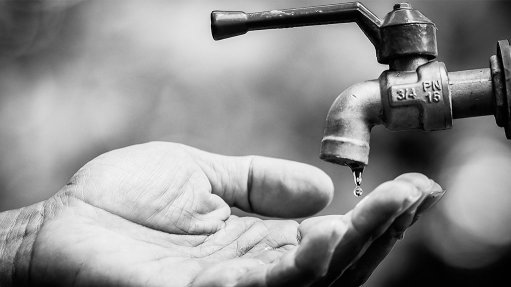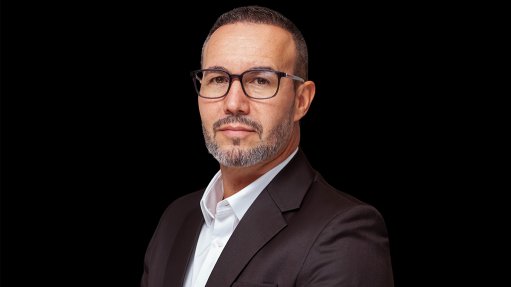Buhari: destructive force in the Nigerian economy
I have come to realise that Nigeria is not going to shape the investment future of West Africa, let alone Africa,” laments my lunch guest. “Especially when you compare it with what is happening in other countries, like Senegal, Kenya . . . where so much is going on. Every time I land at Lagos Airport, I get a sinking feeling. It’s such a mess.”
My guest should know. He is a highly successful member of Nigeria’s diaspora, an Ivy League university graduate who entered business through a global consulting firm and returned home during the late 1990s at the behest of politicians to contribute his skills. He went on to build three highly successful businesses. Now capital rich, he spends much of his time scouring the continent for the best opportunities and the best places to do business. For him, that is no longer Nigeria.
When I reflect, I agree. As a strategic adviser who has offered advice to boards on where, when and how to invest across Africa, I have always said two things. First, if you do not have an Africa strategy, then you do not have a strategy. Secondly, if Nigeria is not in it, your strategy is lacking.
I no longer think that – anecdotal evidence and statistics bear me out. On October 25, the World Bank published its 2020 Doing Business Index (DBI) – a report that investigates “the regulations that enhance business activity and those that constrain it”. The report ranks economies from 1 to 190. A high Ease of Doing Business ranking means the regulatory environment is more conducive to starting and operating a firm locally. This year, Nigeria obtained an honourable mention, having joined the ‘top ten improvers group’, but its ranking shows it bumping along the bottom-ranked countries in the world. So, although the 2020 DBI ranked Nigeria 131 out of 190 countries, up 15 places from 146th last year, the country fares poorly when compared with its peer group economies in Africa – that is those that compete with it for investors’ funds. Mauritius, Africa’s top-ranked country, is ranked 13 and Nigeria’s nearest real investment competitor, Kenya, is ranked 56.
Nigerian officials claim they aim to be a top 100 economy by 2020. However, there is no sense that President Muhammadu Buhari’s government is taking any steps to achieve this lofty goal, despite the considerable political advantages his second term affords him. Buhari has clear control of the political system. His second term victory was decisive: he took 56% of the Presidential vote, compared with People’s Democratic Party leader Atiku Abubakar’s 41%. Moreover, he controls both houses of the National Assembly.
Yet, since he came to power, Buhari has proved a destructive force in the economy and there is little scope that this, his final term in office, will improve conditions for business, encourage new foreign investors or improve conditions for the majority of Nigerians. During his first term, he went against the policy agenda that a group of technocrats developed for his All Progressives Congress platform. Instead, he turned to a small cabal of mainly northern advisers and implemented an interventionist approach. Harking back to unlamented military rule, he reversed liberal reforms implemented since 2000, fixed the naira:dollar exchange rate and banned imports of certain goods. A recession quickly followed as the oil price plummeted.
Nigeria’s problems are legion. Post-recession growth is sluggish and Nigeria’s is a high-inflation economy based on below-par oil production. Nearly a quarter of the population is unemployed or underemployed. Insecurity has increased nationwide, notably in the north-east, where the military has lost control of the national borders. Militancy is returning to the oil-producing Niger Delta region and new levels of insecurity have destabilised the middle belt states as clashes break out between rural pastoral communities and nomadic herdsmen.
A new-term President’s first task is to present a Budget. The scale of Nigeria’s long-term problem is apparent: the Budget for sub-Saharan Africa’s largest economy in gross domestic product (GDP) terms is set at $30-billion for a population of 200-million. Some $13-billion of this amount is spent on security or security-related portfolios, dwarfing spending on, say, education. This compares ill with Kenya, where the same amount is spent on a population of some 50-million people.
In the immediate term, business is in for a shock. The Nigerian government’s goal is to increase its tax-to-GDP ratio from a current estimated 7% of GDP during Buhari’s final term to bring Nigeria in line with peer economies, such as Kenya, which routinely post tax-to-GDP rates of 15%. So, would-be investors can look forward to a doubling of current taxation levels in a low-growth environment!
The Buhari government has also intimated that it will turn to alternative means to boost State revenues. In a similar ploy to the legal tactics used against South African telecommunications giant MTN, which it fined almost $1-billion for failing to disconnect undocumented SIM card users, government has now turned on Nigeria’s main international oil producers. Buhari’s attorney-general and the Justice Ministry are using a 2018 Supreme Court ruling which allows government to claw back some $62-billion from these oil companies. Government claims that Shell, ExxonMobil, Chevron, Total and Eni failed to comply with a 1993 contract law requirement that the State receive a greater share of revenue when the oil price exceeds $20/bl.
Most ironic of all is that one of the main improvements that led to Nigeria’s better Doing Business ranking was its improved border procedures. Since the rankings were finalised in May, the Buhari government has launched a land-border closure programme, allegedly to stop the smuggling of rice and wheat. Since August, it has extended its border-closure programme to stop the movement of all goods from Benin, Niger and Cameroon, effectively banning trade flows with its neighbours. While this is problematic on several fronts, it highlights the Buhari government’s attitude to the African Continental Free Trade Agreement, just three months after Buhari signed the protocol with 55 member countries.
No-one is spared the harmful effects of this aspect of Buhari’s economic myopia: business organisations say that 90% of Nigeria’s trade with West Africa is by road, and accounts for some 15% of the nation’s GDP. Manufacturers have scrambled to use sea links to supply neighbours, and claim their losses are over $5-million a day. They say that traders play a major role in the value chain of the real-sector activities in the economy, and the trade sector is the country’s largest employer.
Meanwhile, my friend, too attached to his home country to give up entirely, is doing what successful business leaders do while waiting for the tide to turn and has turned to philanthropy.
Article Enquiry
Email Article
Save Article
Feedback
To advertise email advertising@creamermedia.co.za or click here
Announcements
What's On
Subscribe to improve your user experience...
Option 1 (equivalent of R125 a month):
Receive a weekly copy of Creamer Media's Engineering News & Mining Weekly magazine
(print copy for those in South Africa and e-magazine for those outside of South Africa)
Receive daily email newsletters
Access to full search results
Access archive of magazine back copies
Access to Projects in Progress
Access to ONE Research Report of your choice in PDF format
Option 2 (equivalent of R375 a month):
All benefits from Option 1
PLUS
Access to Creamer Media's Research Channel Africa for ALL Research Reports, in PDF format, on various industrial and mining sectors
including Electricity; Water; Energy Transition; Hydrogen; Roads, Rail and Ports; Coal; Gold; Platinum; Battery Metals; etc.
Already a subscriber?
Forgotten your password?
Receive weekly copy of Creamer Media's Engineering News & Mining Weekly magazine (print copy for those in South Africa and e-magazine for those outside of South Africa)
➕
Recieve daily email newsletters
➕
Access to full search results
➕
Access archive of magazine back copies
➕
Access to Projects in Progress
➕
Access to ONE Research Report of your choice in PDF format
RESEARCH CHANNEL AFRICA
R4500 (equivalent of R375 a month)
SUBSCRIBEAll benefits from Option 1
➕
Access to Creamer Media's Research Channel Africa for ALL Research Reports on various industrial and mining sectors, in PDF format, including on:
Electricity
➕
Water
➕
Energy Transition
➕
Hydrogen
➕
Roads, Rail and Ports
➕
Coal
➕
Gold
➕
Platinum
➕
Battery Metals
➕
etc.
Receive all benefits from Option 1 or Option 2 delivered to numerous people at your company
➕
Multiple User names and Passwords for simultaneous log-ins
➕
Intranet integration access to all in your organisation


















